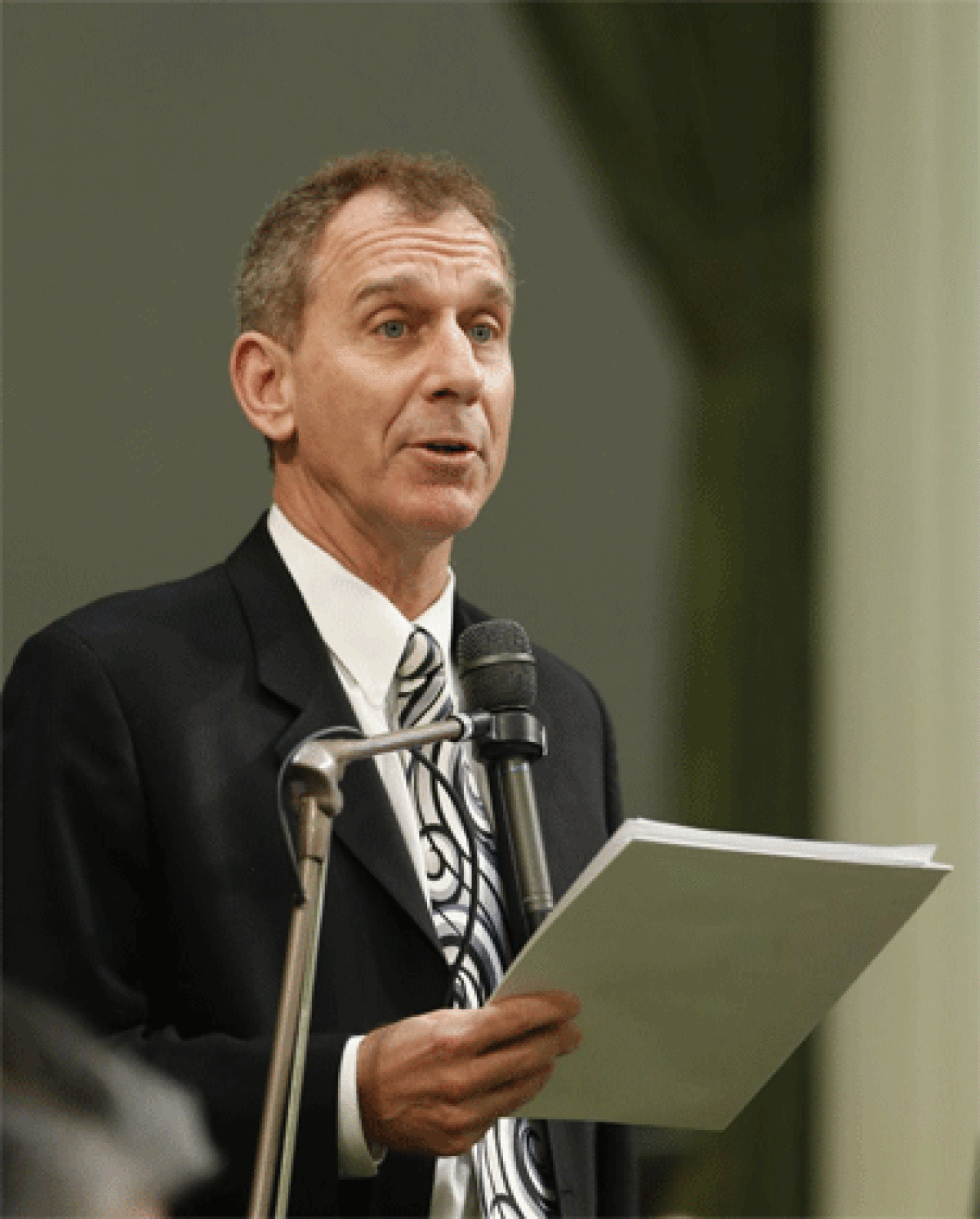The case for citizen jurors

- Share via
A bill in the California Legislature would open jury duty to noncitizen legal residents, a risky experiment in fundamental U.S. law.
The Assembly last week passed a bill that immediately drew nationwide attention — for all the wrong reasons. There goes that wacky Golden State again!
Assembly Bill 1401, which now goes to the state Senate, would allow noncitizens who are legal residents to serve on juries. If this becomes law, California will be the only state that opens its jury pool to noncitizens. The measure’s proponents apparently find no logical connection between citizenship and the role jurors play in the American justice system.
EDITORIAL: The power of jury duty
But that is simply not true.
There are good reasons why U.S. law has consistently excluded noncitizens from jury duty. People come to America legally from many cultures, for many reasons and at many ages. They come for work or for an education or to join family members. They have not necessarily — and in fact probably have not — been raised in a similar legal culture. That matters. It is no insult to those legal residents to recognize that they are more likely than a citizen to be missing key understanding of the social contract that we expect jurors to have.
Our jury system is predicated on certain values. For example, under our laws, everyone is presumed innocent until proved guilty, punishment must be proportionate to the crime, and all people are created equal. The rich get no more justice, and no less, than the poor; the government must prove a criminal charge against the defendant beyond a reasonable doubt; the punishment for theft is not the hacking off of a limb. Those are basic tenets of American jurisprudence. Naturalized citizens learn them as part of the naturalization process; those born and raised here — no matter their heritage — learn them from the culture as they grow up.
TED RALL CARTOON: How California courts would have to adjust to noncitizen jurors
However, those principles are not necessarily shared elsewhere in the world. In totalitarian regimes, for example, the arrest of a criminal defendant carries a presumption of guilt. And in nations that are governed by sharia law, the punishment for theft can be amputation and women are second-class citizens. Yet under this proposed jury law, legal residents who lived under such laws in their former countries would be able as jurors to decide on a defendant’s punishment. Those from totalitarian regimes, contrary to all of their experience, would have to assume a defendant’s innocence and put the burden of proof on the police.
Even legal immigrants from Western nations may find our jury system perplexing. For instance, in many civil law countries, judges play a much more aggressive role in the trial process than do judges here. What would such a juror make of the more passive, gatekeeper role our judges assume?
Does this proposed law weaken the presumption of innocence or threaten to make criminal penalties harsher? Would legal immigrants who do not necessarily share the cultural references of the community, through no fault of their own, improve the quality of our justice system or fundamentally transform it?
Beyond a doubt, the overwhelming majority of legal immigrants can be expected to try to do their duty if selected to serve on a jury. But they will inevitably bring to their service different experiences, and perhaps values inconsistent with the American jury system. The experiment is not worth the risk.
Nor is there even a good reason to run the risk. Some supporters of the bill say that the pain of jury service should be spread to noncitizens. Other proponents argue that courts are finding it difficult to find willing and qualified jurors, so the potential pool must be expanded. But neither reason is persuasive.
First, spreading pain is hardly a compelling reason to tinker with a bedrock institution of U.S. law. The right to trial by jury goes back to one of the founding documents of Western law, the Magna Carta. Surely not even the Democratic solons in the Assembly, most of whom voted for the legislation, consider themselves wise enough or legal scholars enough to ignore nearly a millennium of jurisprudence.
Second, the courts are not complaining about a lack of jurors. I serve as vice chairman of the Assembly Judiciary Committee and, in that role, have met with the chief justice of the California Supreme Court and presiding Superior Court judges from around the state. Not one of them has said that the courts have too few jurors.
There is no sound public policy reason for this sort of crazed California experiment in fundamental changes to American law.
Republican Donald P. Wagner represents the 68th Assembly District, which includes all or part of the Orange County communities of Irvine, Orange, Tustin, Lake Forest, Anaheim, Villa Park and surrounding areas.
More to Read
A cure for the common opinion
Get thought-provoking perspectives with our weekly newsletter.
You may occasionally receive promotional content from the Los Angeles Times.






